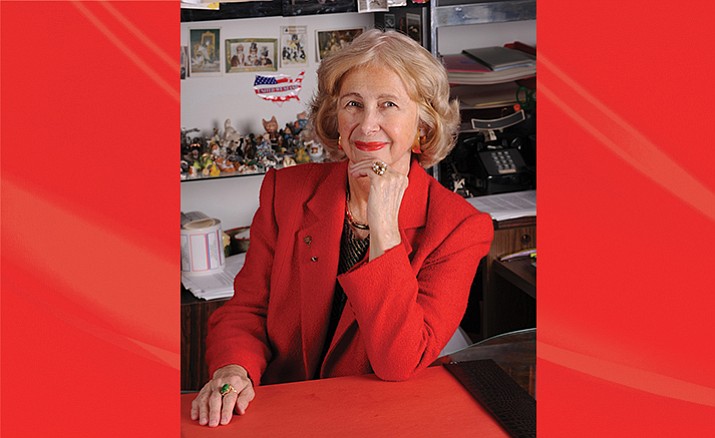Commentary: In French election, youth brings optimism
Having covered Europe for the last 40 years, I was overwhelmed with wondrous memories this week as the centrist Emmanuel Macron stepped elegantly out of the Louvre, once the residence of French kings, to celebrate becoming the youngest president of France since Napoleon.
I remember the Spanish socialist Javier Solana, "foreign minister" of the then newly formed European Union, courteously ushering me out of his office in Brussels in the late '90s and saying about the union's great attempt to unify Europe, "Now there will be no more wars!"
I also remember the secretary general of NATO, the impressive German Manfred Woerner, telling me at the height of the Serbian attempts to annihilate Bosnia in 1993 how he had survived the horrors of World War II, but now, because of American and European dithering in the face of this mass murder, "I am head of the most powerful military alliance in history -- and I can do nothing."
Why are such happy and sad memories important? Because they illustrate clearly the genuine pursuit for a better world and the grave disappointment that characterized the struggle since 1951 to integrate the European nations into one "Europe." It was the continent, after all, that could have destroyed the entire world with its wars -- and those two only in the 20th century. But Sunday, in this unlikely fellow, the EU may have survived.
There was something splendid about the gracious Macron's ascendance to the presidency. He walked out on stage at the Louvre to the strains of Beethoven's "Ode to Joy," the anthem of the EU. He addressed "My dear compatriots," the French people, and he spoke of "refounding" Europe under the spirit of the Enlightenment.
Around Europe, and indeed the world, liberal voices were enthralled. This chap who suddenly popped up, seemingly out of nowhere, had "saved" France from the ultra-rightist Marine Le Pen and her party with its anti-Semitic and even pro-Nazi past and open Russian support. She had never had a chance before, but this year it looked like she might be president of France.
And many thought Macron, a man of only 39 years who had been an investment banker at Rothschild and who won 66 percent of the vote over Le Pen's 33 percent, had saved Europe not only from itself and its tortured bureaucracy in Brussels, but from the same phantoms that are stalking much of the Western world: massive de-industrialization, leaving in its wake "rust belts" in the north of France as well as in America; low investment rates in France; and the threats perceived by massive emigration from the Islamic world. To start with.
More existentially, in an interview with The Washington Post, professor of politics Madani Cheurfa of Sciences Po in Paris, put it well: "What we're seeing is historic: a choice between two completely different modes of organizing a society. The world is focused on France because France has managed to encapsulate -- almost to the point of caricature -- the debate underway across the world."
Until at least 1991, when the Soviet Union officially collapsed, that question of how to organize a society was couched in the most profound and constant terms between Western liberal democratic institutions and practices, and communism's autocratic and collectively fascistic ones.
But today, many of the choices are amorphous: How do you face the threatening winds of change that globalization blows? How do you maintain your Judeo-Christian principles about succoring the suffering wayfarer, yet stop an Islamization of your society that may destroy those very roots? How do you continue to enjoy a consumer capitalism that offers you choices against a casino capitalism that snatches your jobs and humiliates your society?
President-elect Macron answers these questions with an enhanced centrism. MORE depth to the EU. MORE welcoming of reasonable pluralism. MORE cooperation between France and Germany, as they march together toward a reformed union. And higher unemployment benefits and a $55 billion investment in clean energy. To start with.
Personally, I suspect the new president will encounter his problems in the cultural arena. France has been increasingly suspicious, and even hostile, to the overwhelming refugee flow of the last two years from a war-torn Middle East. It is, for instance, the European country that has taken the strongest stand against Muslim women wearing the hijab in public places.
Yet, Macron said at one of his rallies: "Globalization can be a great opportunity. There is no such thing as French culture. There is culture in France, and it is diverse." (No culture in France? You could have fooled me!)
"But," you ask suspiciously, "what in the world was that you were saying about Napoleon? He was never elected president." Well, in fact, it was not the "great" Napoleon, the general and emperor, of whom we speak, but his nephew, one Prince Louis-Napoleon Bonaparte, who was elected president of France in 1848. Like Macron today, he also broke through the system to become, at 40 years of age, the youngest French president ever.
Until this week.
(Georgie Anne Geyer has been a foreign correspondent and commentator on international affairs for more than 40 years.)
SUBMIT FEEDBACK
Click Below to:




